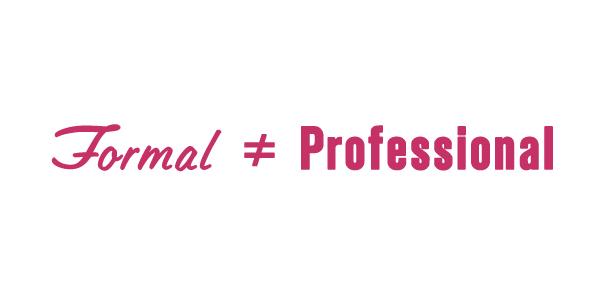 “Manners are sensitive awareness of the feelings of others. If you have that awareness, you have good manners, no matter which fork you use.” – Emily Post
“Manners are sensitive awareness of the feelings of others. If you have that awareness, you have good manners, no matter which fork you use.” – Emily Post
What do you think of when you hear the word “formal”? Do you see visions of a suit and tie, someone who addresses folks by Mr. and Ms., maybe even someone who is a bit…stuffy? Now think of the word “professional.” You might think of someone who is great at what they do, gets projects done on time, and is always courteous. In business, having manners isn’t so much about following a strict set of rules; it’s about making the other person feel comfortable and doing a top-notch job.
In fact, being overly formal can be just as offensive as being too casual. Clients could interpret your aloofness as coldness, disinterest, or even condescension. Even something as simple as addressing customers can turn into a faux pas. Say you receive a call from a new client by the name of “Pat Jennings.” It can be difficult to distinguish gender over the phone, especially if they’re on a cell phone or speakerphone. One slip up — “How may I help you, Ms. Jennings?”…”Oh! My apologies! Mister Jennings!” — can ruin a sale.
The next time you meet a new client or chat with an existing one, follow their lead. If they introduce themself as “John,” go with that. If they prefer “Mr. Smith,” say, “Pleased to meet you Mr. Smith!” Match their tone and pace, and remember: being cheerful and friendly will help put everyone at ease and make a great impression for your company!



